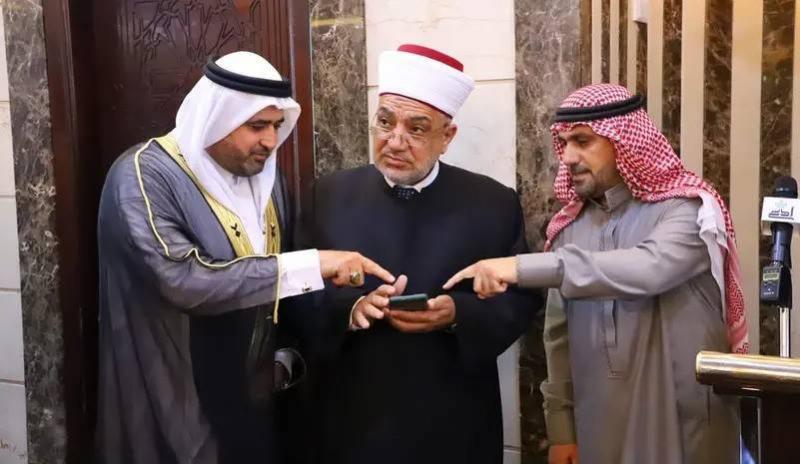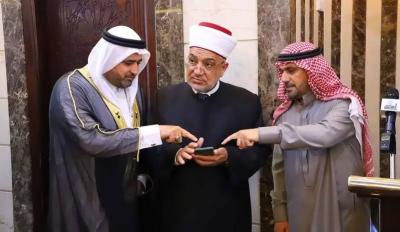The first smart mosque in Jordan, designed to serve mosques across the country, has been inaugurated. This mosque, named "Makiya Khamis," is located in the capital, Amman, as part of the smart system project for mosque services. During the mosque's opening, Jordan's Minister of Awqaf, Muhammad Al-Khalaileh, stated that the experience of the smart system for mosque services will be generalized to include all mosques in the kingdom as part of the ministry's ongoing efforts to modernize and develop its services in line with the royal visions and directives.
He added that the smart mosque service project is a pioneering initiative towards a sustainable community, contributing to the use of electronic systems to rationalize expenses, facilitate the management of all components of the mosque, and enable monitoring of any violation or malfunction in the mosque, with automatic reporting through alerts. He pointed out that the timing of the call to prayer, consideration of time differences, and the control of lighting, air conditioning systems, and the opening and closing of mosque doors will be managed electronically.
The Jordanian minister indicated that it would be possible to obtain statistical reports on operating rates and consumption and to monitor and connect the status of mosques via a mobile application that connects wirelessly to the mosque. He noted that the construction of mosques is divided into two types: the first is physical construction through building, maintenance, and restoration, and the second is spiritual construction, which involves reading, reciting, and mastering the Quran, as well as prayer and remembrance circles. He emphasized that the first step taken by the Prophet upon migrating to Medina was the construction of a mosque, highlighting its role in building individuals and the community.
For his part, the minister's advisor for development and innovation, Murad Nawaf Al-Rifa'i, outlined the phases the project went through, starting from the idea's inception to its implementation and the emergence of its results. He pointed out that the mosque's numerous facilities, which include a women's prayer hall, a gym, and a Quranic center, created an ideal environment to test the experience and assess its impact.
Al-Rifa'i further explained that the model of a mosque operating under the smart system enhances governance values, future foresight, and excellence by employing a comprehensive system of devices through modern technologies and advanced software, enabling the ministry to effectively manage all mosques. He also mentioned the smart treasury project, which allows access to only three individuals: the mosque imam, the head of the committee, and the treasurer, in accordance with the regulations and the principles of transparency and integrity.




